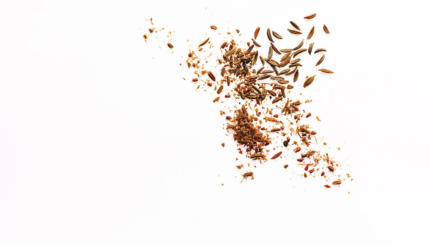I remember the first time I saw Salt listed as an ingredient in a recipe I was making. It seemed so strange. The whole recipe was kosher. Why specify the salt?
Because, it turned out, kosher salt doesn’t mean salt that’s kosher, it means coarse salt. But, why? Because coarse salt was used in koshering meat. Kosher meat has to have all of the blood drained out of it, and coarse salt is good at staying on the surface of the meat and drawing the blood out.
More fun facts about kosher salt, courtesy of The Jew & The Carrot
· Because salt never spoils or decays, it is symbolic of the eternal covenant between the Jewish people and God. As salt adds flavor to everything it comes in contact with, so our bond with God adds meaning to every moment of our lives. A Jewish table is considered to be an altar. Having salt on the table brings to mind the days of the Temple when salt was offered with every sacrifice. It’s a Jewish tradition to dip bread (not just
and not just on Shabbat) in salt before eating it because of its symbolic link to God.
· Kosher salt is raked during processing. This gives the grains of kosher salt a structure that looks like stacked cubes. The larger, more open surface area means that it can absorb more moisture than a regular, single cube-like grain of salt.
· Grains of kosher salt take up more space than an equal weight of regular table salt. This is because kosher salt grains are larger, irregular and vary in size. Many brands of kosher salt have usage tips for compensating for this. (Morton Coarse Kosher Salt recommends using its salt teaspoon for teaspoon to replace table salt up to amounts of a quarter of a cup. If you’re using more than that, Morton recommends adding an extra tablespoon of coarse kosher salt per quarter cup of salt called for.)
· Kosher salt – like pickling salt – doesn’t have iodine in it. (Iodine is often added to salt to prevent goiters.) While the iodine doesn’t affect the flavor of canned or pickled foods, it causes the brine to become cloudy. Food pickled or brined in iodized salt has a grayish, unappetizing appearance. (Pickling salt — in contrast to kosher salt — is fine grained to dissolve faster.)
· Kosher salt typically has no additives such as anticaking agents that keep salt from clumping in humidity. (Morton Coarse Kosher Salt, however, has ferrocyanide to prevent caking.) Such agents include tricalcium phosphate, calcium or magnesium carbonates, fatty acid salts (acid salts), magnesium oxide, silicon dioxide, calcium silicate, sodium aluminosilicate, and calcium aluminosilicate. There are growing concerns about the effects of aluminum compounds, although both the European Union and the U.S. FDA permit their use. (The lack of anticaking agents is another trait that kosher salt shares with pickling salt.)
And more..
Even more info about kosher and all other kinds of salt in the awesome and crazy book, Salt: A World History by Mark Kulansky.

